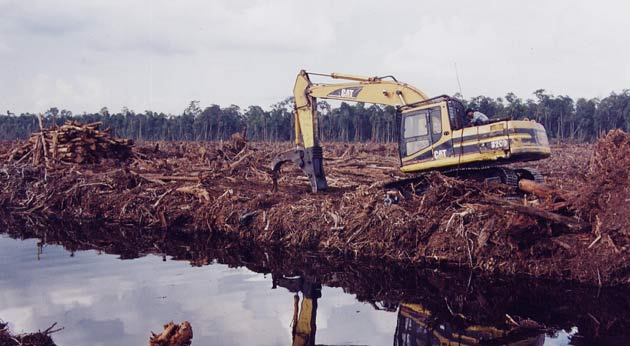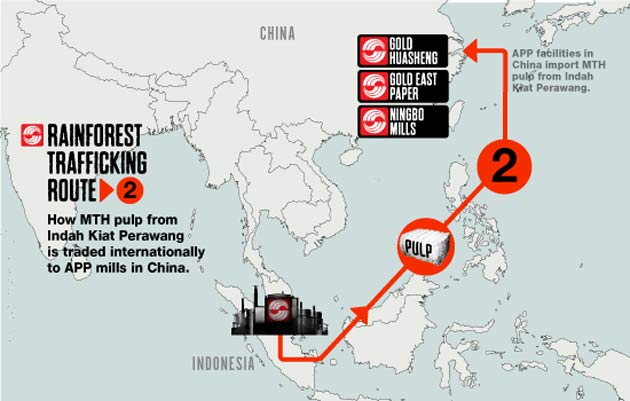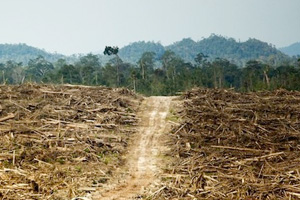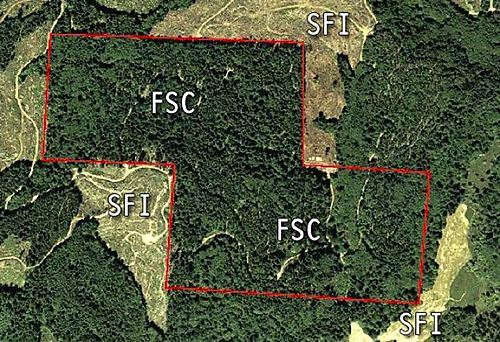
A cleared Indonesian rainforest.<a href="http://www.flickr.com/photos/rainforestactionnetwork/5681326518/sizes/l/in/photostream/">Rainforest Action Network</a>/Flickr
Here’s something to consider before you reach for your next book at Barnes & Noble: Its pages may come from Asia Pulp and Paper—a leading Indonesian company that’s come under scrutiny for its dodgy environmental practices. APP claims that illegal logs are not part of its wood supply. That’s not true, according to a yearlong investigation of the company by Greenpeace, the results of which were published yesterday.
APP, it turns out, has been violating Indonesian and international laws protecting the country’s rainforests, in particular the ramin tree species. Ramin trees exist primarily in the country’s Sumatra region, and are key to the survival of the endangered Sumatran tiger. The trees are protected under the United Nations CITES treaty (Convention of International Trade in Endangered Species).
In the past, APP’s questionable sourcing practices have led companies from Mont Blanc to Mattel to cut off ties with the supplier. But the Greenpeace investigation found that APP’s paper still ends up in products you’ll find on shelves at Barnes & Noble bookstores, in Xerox products, and—more surprisingly—in the pages of National Geographic. (The magazine has since issued a statement to Greenpeace pledging to stop doing business with APP). You can browse through other companies using APP products here (PDF).
Greenpeace reports that it collected samples from 46 logs at APP’s Indah Kiat Perawang mill (the largest in Indonesia), then sent them for testing at an independent laboratory in Germany. The results showed that APP mixed ramin wood fiber with other kinds of rainforest tree pulp, then funnelled through paper mills in Sumatra, Java, and in China. For those curious about paper travels from a rainforest in Indonesia into your hands, Greenpeace also maps out four paper trafficking routes, like this one:


















